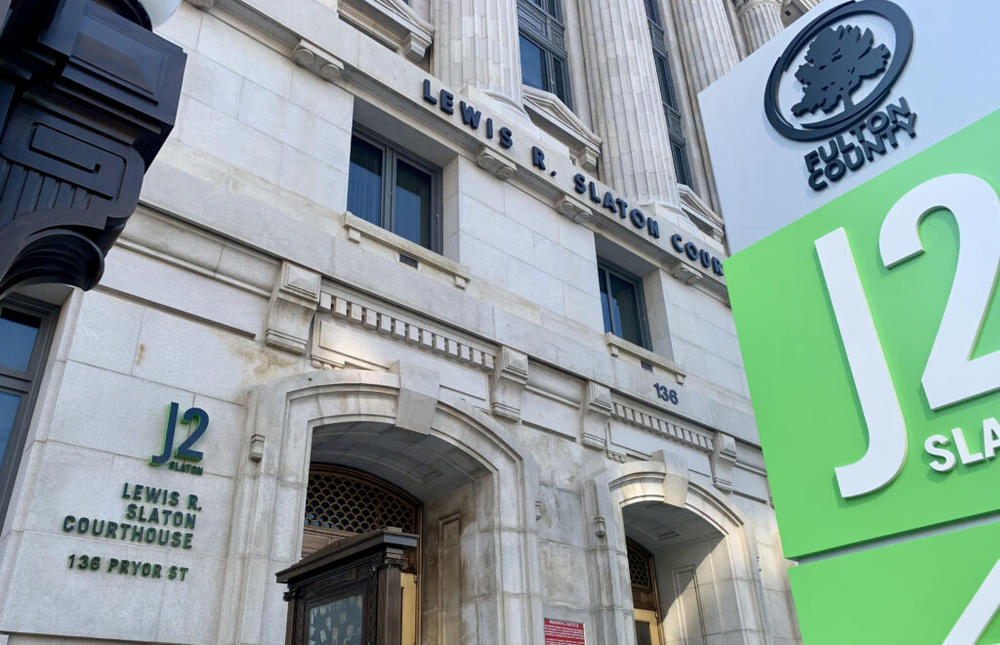
Caption
Despite 1 million people calling Fulton County home, the formula used by the state to pay judges and prosecutors is the same for judicial circuits that are much smaller.
Credit: Stanley Dunlap/Georgia Recorder

Despite 1 million people calling Fulton County home, the formula used by the state to pay judges and prosecutors is the same for judicial circuits that are much smaller.
Georgia legislators are eyeing changing an outdated law that hinders local prosecutors and pouring additional resources into a judicial system that attorneys and judges say needs increased investment to clear a backlog of court cases across the state.
Georgia prosecutors and judges are urging lawmakers to provide more competitive pay in the judicial system in order to better retain experienced attorneys and judges who can move cases along.
At a meeting held on Dec. 14, the majority of members of the state Senate public safety subcommittee said they would examine ways to change a state law that dates back at least to the early 1980s and limits some districts from deploying prosecutors to wade through the caseload.
The decades-old state formula limits the state to paying for one assistant district attorney for every judge budgeted within a judicial circuit, said Peter Skandalakis, executive director of the Prosecuting Attorneys’ Council of Georgia.
As Georgia grew rapidly and resources began to divide between rural and urban communities, that formula has slowed the resolution of cases.
As a result of a spate of violent crimes and overcrowding in its jails, a Senate subcommittee was assigned to investigate the safety of inmates and how fast they are released.
Georgia’s 159 counties and 50 judicial districts have varying ways of running their jails and courts, which affects how long it takes a person to post bail after being arrested, and how long it will take before a case is settled through trial, plea agreement, or the dropping of charges. It can take a considerable amount of resources to prosecute more serious violent felonies, Skandalakis said.
“I cannot think of an instance where you had a major case of child molestation, aggravated sodomy rape, homicide, where you are not constantly working that case, almost all the way up to the time they goes to trial,” he said.
“Everyone talks about the pandemic backlog, but I pointed out that there was a backlog before the pandemic,” Skandalakis said.
Coweta County Judicial Circuit District Attorney Herb Cranford Jr. said that there has been a 20% turnover for Georgia’s assistant district attorneys over the last two years and that there is currently a 10% vacancy rate for state prosecutors across the state. Cranford said one of the problems in filling the jobs is a lack of competitive pay for assistants.
Despite 1 million people calling Fulton County home, the formula used by the state to pay judges and prosecutors is the same for judicial circuits that are much smaller, said Roswell Republican Sen. John Albers.
“That is a glaring example that nobody can dispute that math,” Albers said at the committee hearing earlier this month. “That’s certainly something as we’re going through this process that we need to look deeper and to figure out how we bring things to be more consistent.”
Not every district attorney’s office receives county funding, particularly in the most rural areas, Cranford said.
The state currently pays an average salary of $58,000 for new assistant district attorneys, and the district attorneys’ association is asking for that to be increased to $71,000. The prosecutor organization is also seeking to hike the pay for prosecutors who’ve spent a decade or longer on the job.
In the rural South Georgia Pataula and Cordele judicial circuits, which receive no local funding, the prosecutors shortage is exacerbated by seven vacancies out of 13 assistant district attorney positions.
Even with some county funding, Cranford has had to replace 19 of 23 assistant district attorneys in the last three years.
“The purpose is having career prosecutors. people who know how to prosecute a child molestation case, a murder case, somebody that, God forbid, something like that happens to somebody in your family, you would feel comfortable with this assistant DA handling your case,” Cranford said at another December legislative budget hearing.
“I can’t function as a DA if I don’t have good people, and it’s hard to recruit and retain people now,” he said.
Georgia’s low national ranking for the average payments given to public defenders and state prosecutors can often lead to fresh law school graduates seeking some trial experience before moving onto a higher paying job as a private defense lawyer or moving on to a better paying metropolitan area.
“If I can tell somebody out of law school, if you stick with me for 10 years, you’re going to be making over $100,000. I think that’s something that would be attractive and compelling to them,” Cranford said.
State Sen. Randy Robertson argued that some of the ills of an aging criminal justice system can be alleviated by amending the state’s formula based on the number of judges within a district.
“We have public defenders who might have 50 clients sitting in jail, who are trying to give each client their due process while protecting all of their rights,” said the Cataula Republican. “And these are men and women who I think looking at the pay, or being, they could easily go out and set up a private practice and make better money.”
“It would be nice to work on a solution if the state capitol county is handicapped by a dated code and the state government lacks adequate means to strengthen both public defender’s and prosecutor’s offices,” Robertson said.
This story comes to GPB through a reporting partnership with Georgia Recorder.